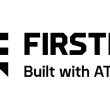Sometimes, dreams do come true
For years, fleet managers have dreamed of intelligent systems that could make their jobs easier by keeping track of units on the road and their cargo, automatically routing voice and data communications to the right vehicle at the right time and maybe even monitoring engine and other vehicle systems to help with routine maintenance.
Those dreams finally have started to come true, with the development of systems that not only deliver data and voice communications to fleets but can decide which way to serve them up most economically, on the fly. That means more data flowing between units on the road and headquarters, clearing the way for constant updates about cargo, vehicle condition and other factors that can affect fleets’ efficiency and profitability.
Best of all, these systems now are within reach of even smaller operators that not long ago never would have imagined having so much power at their fingertips.
Salt Lake City-based DriverTech manufactures the DT4000 TruckPC, a Windows-based system featuring what the company calls “tri-mode” communications. It is designed for use in truck cabs and purportedly can choose which communications system (satellite, cellular or Wi-Fi) offers the lowest-cost communications between the vehicle and dispatchers at any given moment — even switching among the three as a conversation or data transmission is occurring — as local connectivity conditions change from one mile to the next.
Scott Lemon, DriverTech spokesman, said the system provides communications at a fraction of what over-the-road operators are used to paying. “Because the traditional airtime costs associated with over-the-road communications have been so high, the amount of data that could be moved back and forth was limited,” Lemon said. “Now we’ve removed those roadblocks, and the data that can go from truck to dispatcher [and vice versa] is almost unlimited.”
Lemon said that because the DT4000 runs on Windows XP, an enormous range of applications — ranging from fuel optimization, GPS navigation, fuel tax calculation and hours-of-service reporting — can run alongside, and those data reports can be sent regularly via the most economic means possible.
One company that has taken advantage of the technology is Chattanooga, Tenn.-based U.S. Xpress, the fifth-largest publicly traded over-the-road freight hauler in the U.S. The company has designed its own software that sits atop the DriverTech package, providing drivers with customized information and services, including real-time trip and cargo information, inter-vehicle communications, and even training content.
Jeff Seibenhener, vice president of technology at U.S. Xpress, said the company initially was attracted to the package because of the ability to offer drivers more in the way of services to make their jobs easier. “The more connected they are in the cab, the better our fleet performs,” he said. But the system also has paid off in other tangible benefits, such as vehicle security and developing profiles for driver behavior.
“It’s possible to keep track of vehicles when they aren’t operating, and if one [is stolen], it can be disabled safely and remotely,” Seibenhener said. “And as data accumulate about a vehicle’s performance on the road, we’re able to see what drivers are the safest and most efficient in terms of time.”
Indeed, one major attraction of the new fleet-management systems is the ability to keep a virtual eye on vehicles as they sit in truck stops, warehouse yards and the like, to make sure the truck — and all the cargo in it — doesn’t disappear.
In fact, a significant benefit realized from systems such as DriverTech’s is the ability for a dispatcher to know — from thousands of miles away, perhaps — exactly what is happening with not just the truck, but also its trailer. For instance, DriverTech’s system incorporates FleetView 3, a trailer-management system from Plano, Texas-based Terion, which communicates real-time trailer location and event information, whether the trailer is tethered or untethered. It also can provide a record of loads and unloads through the use of a cargo sensor, or provide an alert when a trailer is being unloaded before it is scheduled to be. Lemon says besides the obvious boon to cargo security, the system typically provides benefits in trailer utilization and reduced trailer-to-tractor ratios.
“Companies get really excited about the ability to watch not just their tractors but their payload as well,” he said. “That’s where a lot of the economic benefits come from.”
The information can be delivered to dispatchers either over the Internet or through integration with various dispatch applications. Another feature provides support for over-the-air software upgrades and enhancements, saving the time and opportunity costs of removing a trailer from service for such maintenance — the longer a trailer stays in service, the more revenue it generates — which is vitally important for companies with lean trailer inventories.
On-the-fly mapping and route information, served up just when they need it most — in traffic — is another benefit for drivers using the software. Incorporating information supplied by Chicago-based Navteq, TruckPC can supply everything from MapQuest-style basic route information and directions to much more detailed information, including turn restrictions, road-crossing heights, road access limitations, one-way streets and speed limits. All of that information helps optimize routing, Lemon said, not to mention saving drivers the aggravation and lost time that occurs when they hit an unexpected roadblock or washed-out bridge. Also, the maps include point-of-interest information.
“We find that drivers want to know not just what the best route is, but where there are good places to eat or even stay along the way,” Lemon said.
Central Point, Ore.-based Combined Transport uses the solution to expedite the permit-acquisition process. The company’s heavy-hauling services move oversized equipment and structures that use multi-axle trailers and removable goosenecks for high, wide and heavy freight. Most such loads require special permits, and obtaining them used to require lots of stops, and the use of fax machines — whenever and wherever they could be found. According to Lemon, TruckPC allows a driver to send and receive permit paperwork anywhere.
Drivers simply attach an off-the-shelf USB scanner to the terminal in their cabs and use the scanner to input the data relevant to the permit. They then send it wherever it needs to go. In fact, just about any kind of USB-compliant equipment can be used, including scanners, printers and voice-over-IP telephones.
DriverTech is hardly the only player in the field; other companies that offer fleet-management solutions include Beachwood, Ohio-based SageQuest, San Louis Obispo, Calif.-based Fleet Management Solutions, and Sunnyvale, Calif.-based Trimble.
The convergence of so many different technologies into single in-cab devices is powering what analysts say is a significant surge in the market for fleet-management systems.
William Clark, a research vice president at the Gartner Group, said the power and configurability offered by newer packages may prove irresistible, even to companies that had never considered installing such systems before.
“We have seen a tipping point, where these systems have become good enough, cheap enough and easy enough that they’re attracting companies they might not have before, particularly when it comes to the price of fuel and the fuel savings they can provide,” Clark said. “Buyers are becoming more sophisticated and looking for complete packages they can easily install and configure.”
Clark added that the modular nature of fleet-management solutions, along with their reliance on Windows and other common operating systems, lets companies with small IT shops easily customize the systems to perform the functions they need the most.
“[Companies] will want some customization, they’ll want their own splash screen, and easy access to the functions they think are most critical,” he said. “Even if there’s no IT shop in a company, as long as there’s someone who can be a database administrator, these packages can be made useful.”
The advent of such solutions already has started to level the playing field for smaller operators, according to Clark.
“The middleware is getting good enough that it’s useful to all kinds of companies, and the commoditization of hardware and the software means that the economies are there to make these systems feasible for even small companies,” he said.
So if fleet managers are sleeping better these days, maybe this is why.
















